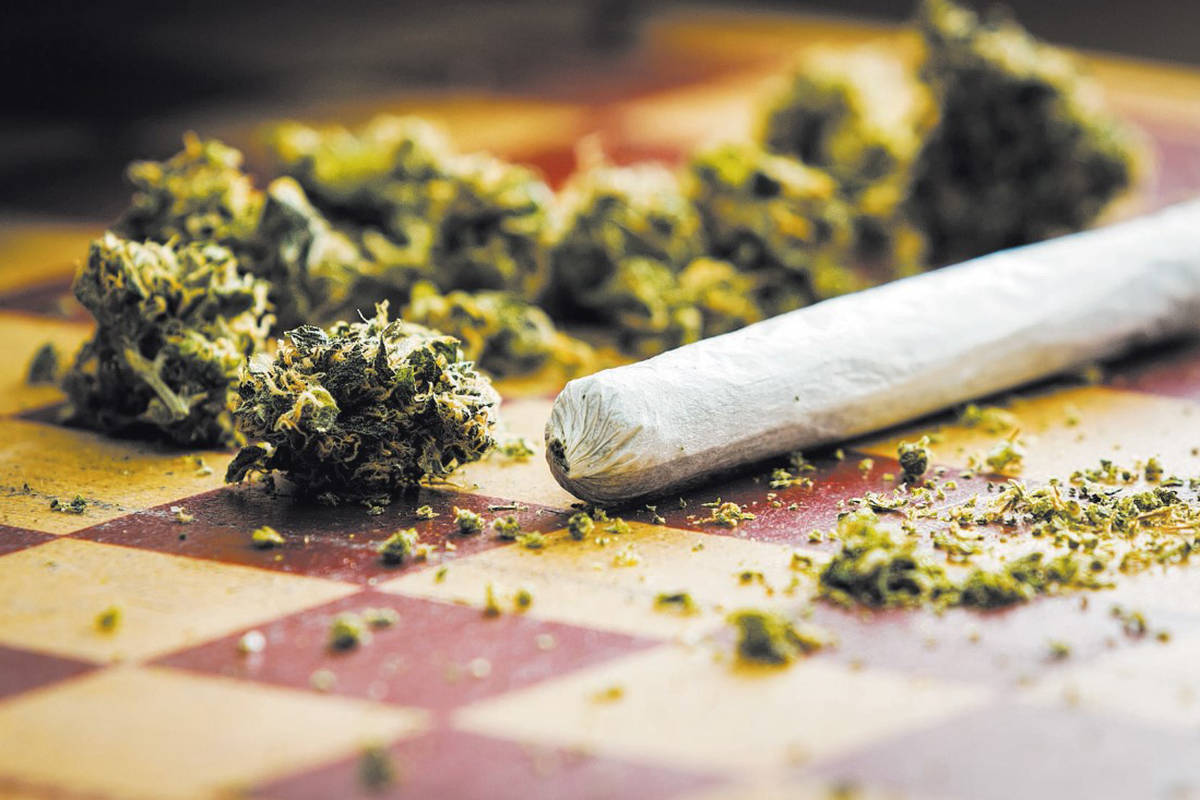Nevada to pardon offenders with minor marijuana convictions

CARSON CITY — Nevada will unconditionally pardon anyone with a now-outdated conviction for low-level marijuana possession, a move that could apply to more than 15,000 people dating to the mid-1980s, following a unanimous vote by the state Pardons Board on Wednesday.
The board’s action on a proposal from Gov. Steve Sisolak, who chairs the board, reconciles Nevada’s past enforcement with the 2016 state ballot initiative that legalized recreational sale and use of marijuana in small amounts.
Records reviewed by the governor’s office show that between January 1986 and January 2017, when legalization took effect, the state saw 31,124 marijuana arrests and 15,592 misdemeanor convictions for possession.
The blanket pardon still requires anyone with a conviction to submit an application, which the board will essentially approve automatically. A pardon does not remove the conviction from someone’s criminal record — a complicated, potentially expensive legal process that involves getting the record sealed.
A bill passed in 2019 by the Legislature is designed to expedite and streamline the procedure and eliminate court fees, but not legal expenses. A lawyer who handles such cases told the board Wednesday that some attorneys charge as much as $2,500 for the service.
Nonetheless, the governor praised the board’s vote as a “historic day for those who were convicted of what has long been considered a trivial crime, and is now legal under Nevada law.”
Before legalization, possession of 1 ounce or less of marijuana could be charged as a misdemeanor or worse, depending on other factors. The pardon also applies to multiple convictions for the same offense, but does not cover other criminal convictions associated with the underlying marijuana conviction.
Many Nevadans “have had these minor offenses remain on their records, in some cases as a felony,” the governor said in a statement released after the vote. “This resolution aims to correct that and fully restore any rights lost as a result of these convictions.”
Attorney General Aaron Ford, who also serves on the board, said the action would “make it easier for these Nevadans to get jobs, housing, and financial aid for college” and showed that criminal justice reform was “a priority across Nevada.”
The state’s seven Supreme Court justices make up the rest of the board. The Board of Pardons Commissioners was tasked with creating the expedited pardon process, which will be free and available online.
After the vote, Sisolak asked the state’s legal community “if they could now spring into action” to help those seeking pardons and sealing of their records.
“There’s a lot of folks out here, thousands, that are going to need some help and assistance and advice and maybe to retain somebody,” Sisolak said.
Also on Wednesday, the board instructed state corrections and parole officials to identify inmates with risk factors for COVID-19 infection that would make them suitable for early compassionate release, but only with action by the pardons board that would make them eligible for parole.
Ahead of the vote, the governor said 8,776 of roughly 12,000 state inmates have been tested for COVID-19, with eight positives, all of which had been in quarantine after transfer from a detention center. Of some 2,655 prison staff, 1,563 have been tested, with 33 positive results.
Contact Capital Bureau reporter Bill Dentzer at bdentzer@reviewjournal.com. Follow @DentzerNews on Twitter.